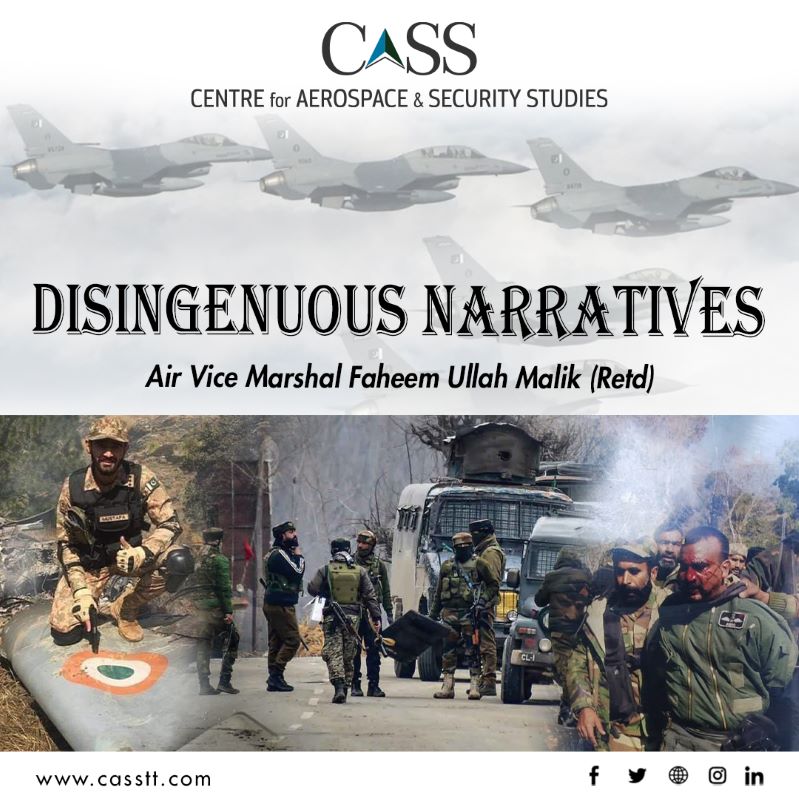In his recently published memoir, “Never Give an Inch”, former US Secretary of State Mr Mike Pompeo has claimed that he was the key factor in averting a nuclear conflagration between Pakistan and India, in February 2019. In an attempt to underscore his role in averting a “global catastrophe” (and justify his obvious fondness towards India), he has sketchily narrated the entire episode of that “impending” disaster, yet skipping the most important factors like events-timeline and Crisis Sequencing that are fundamentally important in establishing who did what, at what time and caused what; leading ultimately towards the recognition of the “Rational Actor”.
To set the record straight and in correct historical perspective, BJP in effort to win their forthcoming national / state elections, raised Pakistani-threat bogey; planning a highly sinister move to massacre their own citizens and blame the attack on her many times smaller neighbour. On 14th February 2019, around 40 CRPF personnel died in a suicide incident conducted by a local Indian Illegally Occupied Kashmiri citizen. It was a sad occurrence with unnecessary loss of human lives due to Indian atrocious occupation. As planned, Indian BJP government blamed Pakistan and started threatening of armed retaliation. At that time, the then Prime Minister of Pakistan not only offered technical assistance on the matter but also advised BJP government to review their anti-Kashmiri and anti-Muslim policies. He concurrently warned BJP government to avoid any misadventure against Pakistani territory or nation, as “Pakistan would not think of retaliation, but it WILL retaliate”.
Even after such a peaceful proposition, BJP went ahead with their plan and the IAF struck inside Pakistani territory at early morning hours on 26 February 2019. Pakistan did not retaliate immediately and promised response after assessment of damage. Mr Pompeo, owing to his personal liking for India and connexion in conception of “might is right”, supported Indian “counter-terrorism action” and reaffirmed US-India ties, but otherwise asked both sides to exercise restraint. Probably he forgot that he was addressing a non ”Israel Vs Palestinian” situation. PAF retaliated on the morning of 27 February, engaged six non-military targets (without any collateral damage) and claimed shooting two IAF fighters, one of which fell within Pakistani territory. IAF retaliated with a fratricide (shooting down their own helicopter) and claimed shooting a PAF F-16 (which was later rebuffed as a lie by many, including Ms C. Fair – a famous Pakistan basher in Washington).
Now comes the narrated twist in the story that is recounted by Mr Pompeo with much salt & pepper added for personal exaltation. He narrates that he received a call from his Indian counterpart (i.e. late Ms Sushma Swaraj), informing about their belief that Pakistan had started preparing their nuclear weapons for a strike and they (Indians) were contemplating their own escalation. But here, any sane person with a bit of military exposure would ask the caller, as to why a country, which had achieved tactical advantage in the first round, would jump straight to strategic level, while it certainly has many other tactical and operational level options to respond to further escalation(s) that India may be contemplating? Also, with Pakistan gaining upper-hand in previous round, wouldn’t it be India’s shot to take the escalation a notch up and gain situational control? And what escalation was India “contemplating” that it feared or expected Pakistan’s nuclear response? And should India as a nuclear power, contemplate such a (sizeable?) counter action against a nuclear foe, that creates a response dilemma and Pakistan is forced into responding through nuclear assets? And What Indian plans had been revealed to Pakistan that it started to prepare for nuclear response?
But Nooooooo!! The India-adoring Mr Pompeo did not ask these questions. Instead, he immediately started calling Pakistani military command and defused the situation with “some real hardwork by their team” in reassuring both sides that other side was not preparing for nuclear war, thus saving “a horrible outcome”.
The questions posed above come to any sane mind at the first review. Even US intelligentsia started questioning the Indian rationality and judgement. Famous US analyst and author Daniel S Markey wrote, “The Modi government’s public mischaracterizations of the February 2019 Balakot airstrike and subsequent air skirmishes, including subsequently debunked claims of a destroyed terrorist camp inside Pakistan and India’s downing of a Pakistani F-16 jet, have already raised questions in the United States about New Delhi’s credibility and communications strategy in the midst of an exceptionally dangerous regional context.”
Undoubtedly, the episode narrated was of serious global repercussions but it would remain incomplete until the actual perpetrators and actors of this entire occurrence are exposed with their real motives and intent. It would therefore remain a wanting blot on US consciousness (being the world leader) to rise above the ordinary, and impartially and fairly identify and discipline the actual criminals who have been a threat to the regional and global peace.
The author is a retired Air Vice Marshal of the PAF and is currently working as Director (Warfare and Aerospace) at the Centre for Aerospace and Security Studies (CASS), Islamabad. This article was first published in Asia Today. The author can be reached at cass.thinkers@casstt.com .




